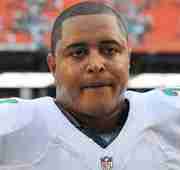A revised concussions settlement between the NFL and former players could shrink the league's coffers – only marginally, though, and not for a long time.
The NFL agreed June 25 to remove a $675 million cap on damages from thousands of concussion-related claims. A federal judge who originally questioned whether there would be enough money to cover as many as 20,000 retired players still must approve the new terms.
The settlement is designed to last at least 65 years and cover retired players who develop Lou Gehrig's disease, dementia or other neurological problems believed to be caused by concussions sustained during their careers.
Removing the cap might lead to the NFL paying out more money to ailing former players, even though the league and lawyers for the plaintiffs believe the $675 million won't be surpassed.
Although the original settlement was trumpeted by both sides, U.S. District Judge Anita Brody denied preliminary approval last January. Her concerns centered, simply, on whether there was enough money in the pot to satisfy all the legitimate claims; some 4,500 retired players were part of the lawsuit. Projections indicate many more will need help.
Dozens of ex-players also have said they would not take part in the original settlement, against the advice of the plaintiffs' attorneys.
The original settlement included $675 million for compensatory claims for players with neurological symptoms, $75 million for baseline testing and $10 million for medical research and education. The NFL also would pay an additional $112 million to the players' lawyers, for a total payout of more than $870 million.
The revised settlement eliminates the cap on overall damage claims but retains a payout formula for individual retirees that considers their age and illness. A young retiree with amyotrophic lateral sclerosis, or Lou Gehrig's disease, would receive $5 million. A 50-year-old with Alzheimer's disease would get $1.6 million. An 80-year-old with early dementia would get $25,000.
Where will the money come from? The NFL isn't exactly hurting for income as it approaches $10 billion in annual revenues.












No Comment